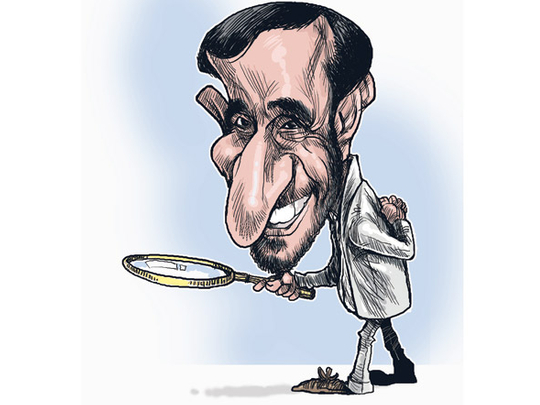
Once again Iran is stirring up trouble in the region with its delaying tactics, manipulation and standoff with the West. Its meddling, intimidation, miscalculations, co-optation, bullying and proxies are putting the region in danger.
The Iranian saga has become a fixture in regional and international politics, with its multi-faceted, interconnected issues, challenges, trump cards and proxies. This has vexed regional and international players alike.
Recent reports on the presence of Iranian spies in the Gulf Cooperation Council (GCC) states and the war games Iran has been conducting have heightened tensions. There is also the issue of Iran's occupation of three UAE islands. Foreign Minister Shaikh Abdullah Bin Zayed Al Nahyan has argued that an "occupation is an occupation", although he insisted that he is not comparing the Iranian occupation of the three UAE islands to the Israeli occupation of Palestine. Nevertheless, he said that "as an Emirati I am more sensitive to the Iranian occupation of the islands than Israel's occupation of Palestine". That solicited an angry Iranian response which once again belittled the occupation and watered it down to a "dispute between friends", which could be solved by bilateral dialogue. But Iran keeps ignoring and turning a deaf ear towards it.
Iran's interference in the GCC states' domestic affairs is well documented. Earlier this year, it was discovered that intelligence cells were operating in Kuwait and Bahrain under the instructions of the Iranian Revolutionary Guards, gathering intelligence and laundering money. This led to the ousting of a Bahraini minister and caused leaders and people in the GCC states to question Iran's intentions and ponder their future relations and ties with the Islamic Republic.
There was another ominous development last week, with Kuwait dismantling an alleged spy cell acting on behalf of Iran's Revolutionary Guards. It was said to be gathering data on sensitive and vital Kuwaiti and American military facilities. This raised a lot of questions in the already highly charged country about issues such as the loyalty of Shiites and naturalised Kuwaitis. There are obviously also fears that Iranian cells may be present in other GCC states as well.
Although this is not a new phenomenon, the timing of the discovery of a cell in Kuwait is chilling, given the cordial relations between Kuwait and Iran and the recent high-profile official visits between the two countries. The Kuwaiti Emir is scheduled to visit Tehran in the next few weeks.
These recent developments have revived old fears. Iran's former ambassador to the UAE, Adel Al Assadi, who defected in 2001, told Gulf News in 2008 that Iran had assembled a widespread network of infiltrators and collaborators across the Gulf, ready to destabilise the region when needed. Speaking from Sweden, where he had sought political asylum, Al Assadi said that Iran's Revolutionary Guards had been covertly building its network of collaborators since 1979. He said he had "no reason to think that this policy has stopped because the practice of recruiting agents in the Gulf is deeply rooted in the way the intelligence institution is operating and is considered a strong point for Iran".
Denial
Although Iran routinely denies these allegations, rejecting them as Zionist and imperialist propaganda, Al Assadi insists that Iran has enough manpower to destabilise the GCC countries. This is obviously bad news, but the good news is that Arab governments and people have become more aware of Iran's intentions, particularly since they were revealed in Iraq.
Fanning the flames of fear and distrust further, Iran has engaged in recent weeks in large-scale and highly publicised military manoeuvres to test its battle readiness and deterrence powers, sending a clear message to the Americans, Israelis and — more importantly — to its Arab neighbours. Iran wants the world to know that it has the power to intimidate. But what was truly insulting was the unconvincing argument by Iran's Secretary of the Supreme National Security Council Saeed Jalili, who insisted that the message conveyed by the military exercises to neighbouring countries was one of security, peace and friendship. I do not know which neighbours Jalili was addressing, but observing these military exercises did not leave us feeling comforted or at ease.
Iran should not expect to gain our appreciation, trust and support if it continues to employ such unacceptable tactics. The country's politics have to change. It is meddling in our affairs, planting spy cells in our countries, undermining our security and threatening to bomb our strategic installations in the event of an attack against it by a third party. This will only sow seeds of bitterness and distrust, and the harvest will be instability and increased dependence on the outsourcing of protection — the very thing that Iran is striving to end. Iran must change its ways.
As far as the GCC states are concerned, it is obvious that Iran has become a destabilising force in our region. The GCC states should together make a concerted effort to counter Iran's hegemonic project and put an end to its meddling in our affairs so it can no longer threaten our individual and collective security.
- Dr Abdullah Al Shayji is the chairman of the Political Science Department at Kuwait University.









